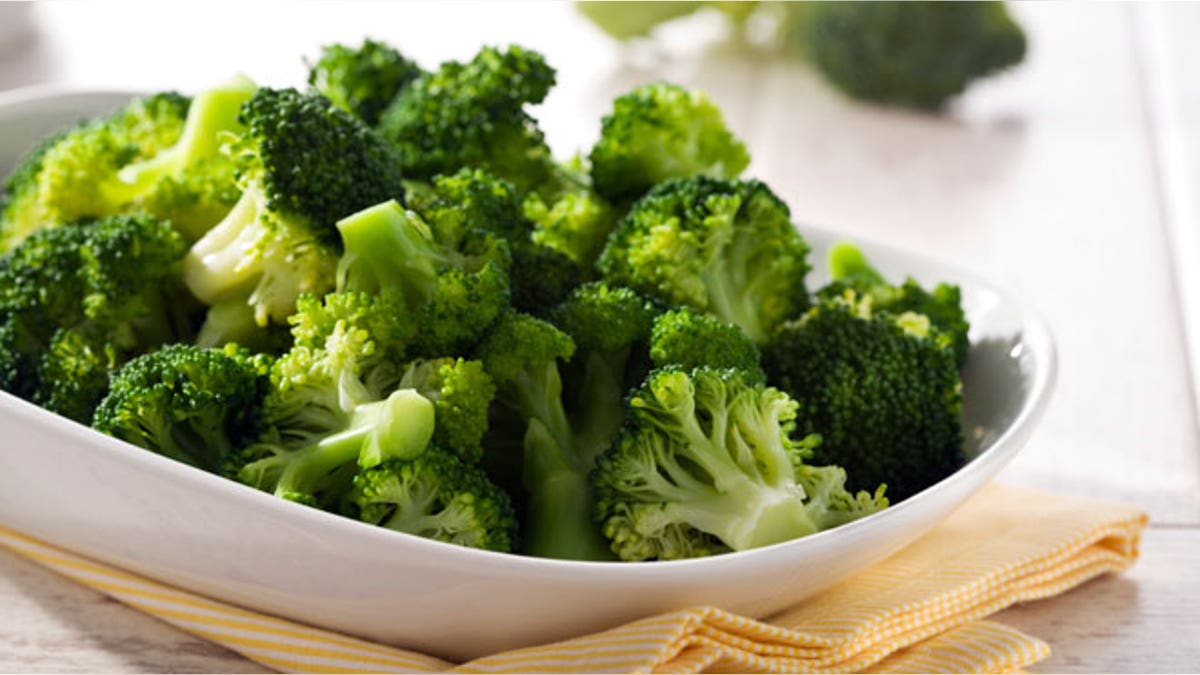
iStock (© 2010 Oliver Hoffmann)
A chemical found in broccoli, cauliflower and other cruciferous vegetables may reduce symptoms of autism spectrum disorders, suggests a new study published in the journal Proceedings of the National Academy of Sciences.
For the study, scientists at the MassGeneral Hospital for Children’s Lurie Center for Autism gave young men with moderate to severe autism, who ranged in age from 13 to 30, a dose of sulforaphane, a phytochemical derived from broccoli. Two-thirds of the participants’ social behaviors improved by the end of the 22-week study.
Researchers were inspired by research in 2007 that indicated when autistic children have a fever, their social interaction becomes enhanced.
“We hypothesized the changes in fever probably are due to changes in cells that are stimulated by what’s called the ‘cellular stress response,’” study author Dr. Andrew Zimmerman, a clinical professor of pediatrics and neurology at UMass Memorial Medical Center, told FoxNews.com.
Zimmerman, who was part of the 2007 research, said there were several chemicals that stimulated changes in autistic children’s behavior during fever. One of them was hydroxyurea, a drug that’s used for sickle-cell disease. Another was sulforaphane.
Previous studies showed sulforaphane can treat skin blistering and boost the immune system. The chemical has been used in over 20 cancer trials as a treatment for the disease.
“It’s a remarkable natural substance,” Zimmerman said.
In the study, 44 participants were split into three groups. Researchers gave two of those groups a daily dose of sulforaphane— ranging from 9 to 27 mg, based on each person’s individual weight— and the third group a placebo. Caregivers gave participants the supplement or the placebo for the first 18 weeks of the study.
Neither the caregivers nor the participants knew if they were given the supplement or the placebo.
During the first 18 weeks, the caregivers completed two surveys: The Social Responsiveness Scale and the Aberrant Behavior Checklist. In the first assessment, caregivers rated 65 different social behavioral traits on a 1-4 scale. They answered questions about their child’s dependency, sociability and calmness. In the other assessment, caregivers answered 58 questions about physical behaviors, such as their children’s tendency to injure themselves or talk excessively, two characteristics of autism.
The higher the ratings for each question on the surveys, the more severe the participant’s autism symptoms.
At the 18-week mark, the average scores on those two assessments among the sulforaphane group decreased 17 and 34 percent, respectively.
In a third assessment given to all participants on the 18th week, called the Clinical Global Impression scale, doctors and caregivers answered broad questions regarding each participant’s autism symptoms, and ranked each item on a scale of 1-7 at the inset and the outset of the study. A “1” rating indicated that the participant’s symptoms were less severe, while 7 indicated severe symptoms. Those participants who took a daily dose of sulforaphane saw an improvement of at least 2 points on each question at the outset of the study.
Forty-six percent of sulforaphane recipients exhibited noticeable improvement in social interaction, 54 percent in aberrant behaviors, and 42 percent in verbal communication. However, one-third of those participants that received the sulforaphane supplement showed no improvement.
Additionally, four weeks after the initial study period, researchers conducted assessments on 22 participants who had since stopped taking sulforaphane after the 18th week. These patients ceased showing improvement.
Researchers said they were surprised that two-thirds of the sulforaphane participants showed improvement.
“None of the clinical trials have shown as significant of a change as this,” study lead author Kanwaljit Singh, of MassGeneral, told FoxNews.com. “The next thing we want to do is conduct this on younger children. We think this will have similar or better results on them.”
Karen, a mother one of the study participants, 21-year-old Jacob, said she and her son’s teachers noticed an improvement in his physical and social behavior during the study. When Jacob had gotten sick with a fever before, she would notice a change.
“As he was growing up, I could always tell when he was getting sick. Even before he was going to get sick with a fever, I thought, ‘I wish I would bottle this,’” Karen, who lives in the Boston area, told FoxNews.com.
During the study, Jacob had a calmer demeanor, made stronger eye contract and exhibited less self-injurious behavior while taking the supplement, she said.
Zimmerman said researchers don’t want to imply that sulforaphane is a “cure” for autism, but that the study shows promise that there may be an equal or better supplement that could treat autism.
To see the behavioral results of sulforaphane without taking the supplement, someone would have to consume an "extremely large" amount of cruciferous vegetables rich in the molecule, Singh pointed out.
"Fully grown Broccoli or other cruciferous vegetables rich in sulforaphane still do not contain enough sulforaphane as given in the current study where purified sulforaphane was used," he said.
Still, Zimmerman said the findings hold promise.
“To me, the most important thing is that it implies what the underlying mechanism is,” Zimmerman said, “because we know how sulforaphane works on the cells. We’re excited to get at the basis of what sulfurophane is doing and also the prospect of improving autism.”








































